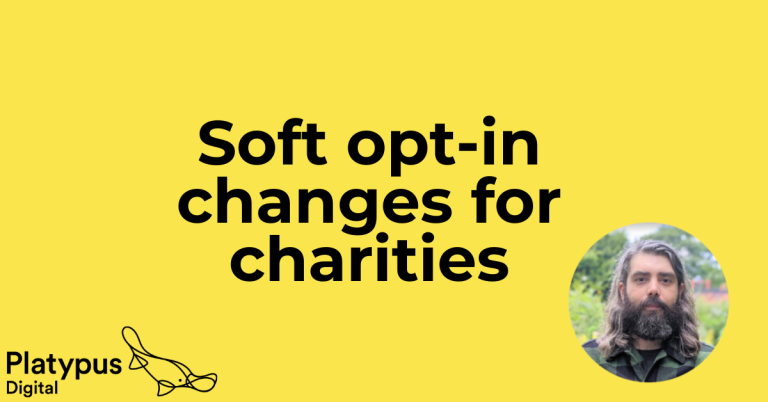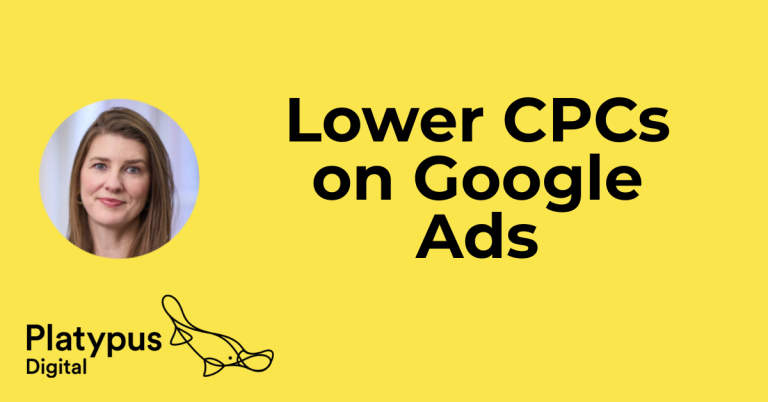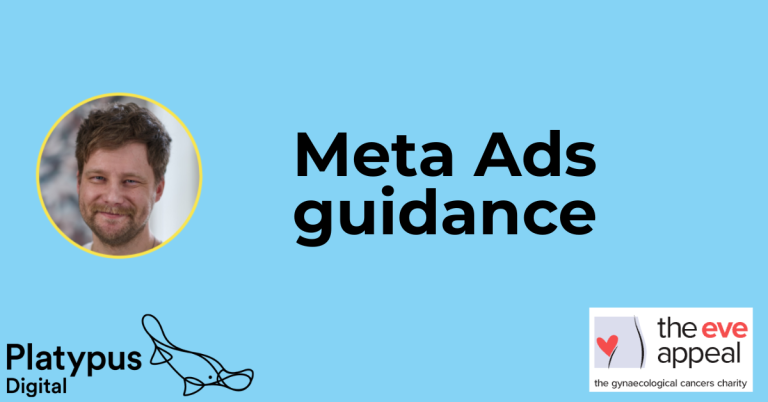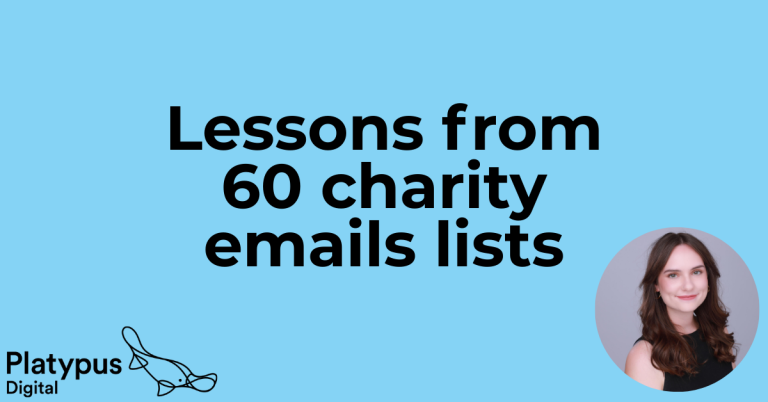Since 2016, charities have been held to stricter standards than businesses when it comes to sending follow-up emails and texts to donors, volunteers and event attendees.
That’s all changing with the Data (Use and Access) Act 2025, which will soon allow charities to use the same ‘soft opt-in’ approach that shops and services already use. This means you’ll be able to send fundraising emails to people who have donated or engaged with your charity without getting explicit consent every time.
This doesn’t apply to telephone or post – just email. But it’s still a significant shift that could help charities retain more supporters and make better use of their limited resources.
Charities have been held to higher data protection standards
Until 2025, UK charities were regulated under the Privacy and Electronic Communications Regulations 2003 (PECR), which controls how organisations send electronic marketing messages such as emails, texts or messages through social platforms. Under this regulation, charities couldn’t send marketing by email/SMS to subscribers unless they had explicit consent, under some quite strict restrictions.
The PECR made room for a ‘soft opt-in’ exemption, but only when company wants to contact a customer where their consent was obtained as part of a sale, and to market similar products or services.
This meant that a business could send marketing emails or texts to existing customers without getting explicit consent – provided that the customer’s contact details were obtained during the sale or negotiation of a product or service, and the organisation gave the customer a clear opportunity to opt out both at the time of collection and in every subsequent communication
Charities were explicitly excluded from this exemption – they couldn’t send follow-up emails or texts about fundraising or campaigns to donors, event attendees or volunteers unless they had explicitly opted in through a clear tick-box or affirmative statement.
This has been a bit of a thorn in the side of the non-profit sector. Since 2016, guidance on how this should be applied has been unclear and fines have been both punishing and inconsistently applied. Many charities have either had to take precautionary but unnecessary measures to cull their supporter lists, or are left paying to acquire donors and supporters that they’re never allowed to contact.
In the face of declining charitable income and increasing costs of living, this is a welcome change that will help the sector connect more effectively with supporters.
The restrictions came at a time where public trust in charities was very low
In 2016, charities were under intense media scrutiny following a series of high-profile media investigations into poor fundraising practices (source: House of Commons Library, 2015, “Fundraising by charities” briefing). This restriction was applied to uphold a higher standard of privacy and consent for non-commercial communications.
By holding charities to the same high standards as political parties, religious organisations and other non-commercial bodies, the regulation aimed to protect individuals from unwanted or intrusive contact, particularly vulnerable people.
So even if someone made a donation or attended an event, a charity could not contact them by email or text without an explicit opt-in. This makes acquisition especially difficult and expensive for charities, who may have spent time, resources and money trying to acquire new supporters only to not be able to contact them afterwards.
The change helps charities to balance communication with protection of individuals
Recently, the government has argued that the PECR regulations have placed an unnecessary burden on charities by limiting their ability to contact people who have already shown an interest or given support.
The Fundraising Regulator, NCVO, and Charity Finance Group all publicly supported this change, stating that it would help charities make better use of limited resources while still protecting the rights of individuals. The Information Commissioner’s Office (ICO) was consulted and supported the change with the understanding that safeguards and opt-out rights would remain in place.
The change came through the Data (Use and Access) Act 2025, which was passed by Parliament and received Royal Assent on 19 June 2025 (source: UK Parliament Bills and Legislation).
The main reasons were:
- To create a level playing field between charities and businesses in how they can communicate with supporters and customers
- To help charities retain and build relationships with new donors and supporters in an efficient and compliant way
- To address the decline in fundraising income experienced by many charities, especially after the COVID-19 pandemic and the rising cost of living (source: NCVO UK Civil Society Almanac 2023)
Charities should still consider the context of their marketing
According to the Fundraising Regulator’s public statement in May 2025, the change is designed to allow charities to contact existing supporters by email, text or other electronic means without fresh opt-in consent, as long as:
- The supporter provided their contact details in the context of an activity that suggests they would be open to hearing more (such as donating or attending an event)
- The supporter was given a clear opportunity to opt out both at the time of collection and in future communications
(Source: Fundraising Regulator)
So while this means charities are freer from restrictions to contact supporters, we should still treat that consent with respect and ensure that whatever we are asking from supporters is aligned with whatever actions they have taken in the past.
Key sector bodies lobbied for the change
Several key organisations lobbied for this reform over a number of years, including:
| Organisation | Role in advocating for the change |
| National Council for Voluntary Organisations (NCVO) | Submitted evidence on the negative impact of PECR rules on small and medium charities’ ability to retain supporters (source: NCVO consultation submission, 2023) |
| Charity Finance Group (CFG) | Highlighted the financial inefficiencies and lost income caused by the inability to use soft opt-in (source: CFG Policy Brief, 2024) |
| Chartered Institute of Fundraising (CIOF) | Advocated for a proportionate balance between fundraising effectiveness and supporter rights |
| Fundraising Regulator | Provided independent advice to the government supporting the idea that responsible use of soft opt-in would not undermine public trust (source: Fundraising Regulator) |
The change was included in the government’s Data Protection and Digital Information Bill (the predecessor to the Act), which explicitly cited the importance of supporting charities to thrive while respecting data protection principles (source: Department for Science, Innovation and Technology policy paper, 2024).
Summary of the new soft opt-in rules for charities
The Data (Use and Access) Act 2025 allows charities to use the soft opt-in for electronic marketing in the same way that businesses already could.
This means:
- If a supporter gives their contact details to a charity during a donation, event registration, petition signing, or another supportive action, the charity can send them fundraising or campaign emails or texts without getting separate, explicit consent.
- The supporter must have been given a clear chance to opt out at the time their details were collected.
An opt-out must also be offered in every email or text the charity sends.
This applies to email, SMS (text messages), and social messaging (such as WhatsApp or Facebook Messenger). It does not apply to telephone or direct mail.
The change cannot be used retroactively – you cannot apply the new soft-opt in status to existing contacts whose details you collected under previous conditions unless you met the new opt-out-at-point-of-collection requirement. It will only apply to data you collect from the point of change onwards.
Not all marketing is eligible: the sole purpose of the message must be to further the charity’s charitable purposes – you cannot use soft-opt in to promote third-party products or unrelated services.
Phone calls and direct mail are not included
The new consent rules apply to electronic mail only. They do not apply to live phone calls (which are regulated separately under PECR) or post. You still need to obtain specific consent to call your supporters or send them physical mail.
(Source: Fundraising Regulator, May 2025)
Key safeguards charities must follow
Just because you can use soft-opt in doesn’t mean you should. The ICO emphasises that charities must consider whether it’s appropriate in each case.
- Supporters must clearly understand why their details are being collected and how they will be used.
- The opt-out must be easy to find and use in all communications.
The charity must respect opt-outs immediately and stop marketing to those individuals.
Sensitive supporters, such as those in vulnerable circumstances, must be treated with extra care. - The Information Commissioner’s Office (ICO) and Fundraising Regulator will publish joint guidance to help charities use this new approach responsibly.
Soon charities can contact more potential supporters
The Fundraising Regulator has made it clear that misuse of the soft opt-in, such as by bombarding people with asks, could still lead to public complaints and formal action.
(Source: Fundraising Regulator soft opt-in update)
The changes for charities
- You can soon send follow-up fundraising emails to people who have donated or engaged with your charity, without asking for explicit consent every time.
- You must still offer a clear opt-out and respect people’s choices.
- You will need to update:
- Website forms (e.g. donation, event registration, volunteering)
- Privacy notices and supporter journeys
- Email templates and unsubscribe processes
- You should carry out a Legitimate Interests Assessment (LIA) to document your decision to use the soft opt-in.
- Update your data systems to be able to distinguish between:
- those who have given explicit consent already
- those who have opted out;
- those whose contact details are collected under the new soft-opt in rules
- Plan to train all staff on updates to ICO guidance
- Consider how else you are tracking vulnerable users, such as service users
Impact on supporters
- Supporters will have more consistent experiences with charities, similar to how they already receive emails from shops or services they have used.
- They will always have the right to say no to future emails at any time.
Timeline of the changes
The new changes are not in force yet
At the time of writing, the law has passed but the rules are not yet active. However, there are still steps charities can take to prepare for this.
Key dates
| Date | Milestone |
| 19 June 2025 | Royal Assent: The Data (Use and Access) Act 2025 became law. |
| Summer 2025 | First government consultation on how the soft opt-in will be implemented. |
| Autumn 2025 | ICO and Fundraising Regulator to publish official guidance for charities. |
| Late 2025 to Early 2026 | Secondary legislation (Commencement Orders) expected to set the official start date. |
| Likely Early to Mid 2026 | New rules come into legal effect. |
Charities should start preparing now by making the above changes and planning outreach campaigns to supporters where appropriate.





